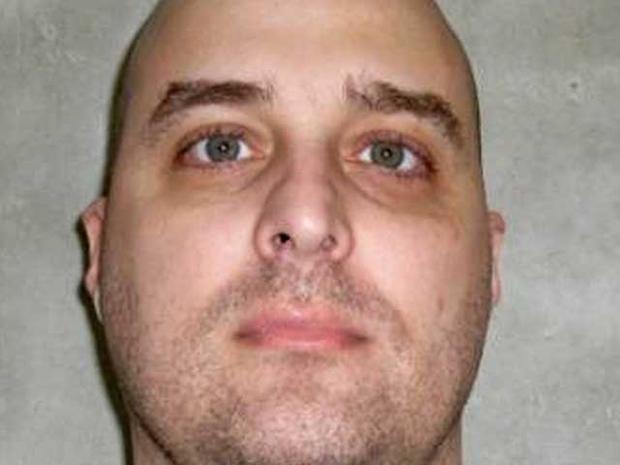Michael Hooper, Okla. man, executed for killing ex-girlfriend and kids
(CBS/AP) OKLAHOMA CITY - An Oklahoma death row inmate who tried to delay his execution by challenging the state's lethal injection method was executed Tuesday evening just hours after the U.S. Supreme Court refused to step in.
Michael Hooper, convicted for the December 1993 shooting deaths of his former girlfriend and her two young children, received a lethal dose of drugs at the Oklahoma State Penitentiary in McAlester.
Hooper was sentenced to death for killing 23-year-old Cynthia Lynn Jarman and her two children, 5-year-old Tonya and 3-year-old Timmy. Prosecutors said the three were with Hooper in a pickup truck in a mowed field when he placed a 9mm pistol under Cynthia Jarman's chin and shot her, then shot the children to prevent them from being witnesses.
Each of the victims was shot twice in the head, and their bodies were buried in a shallow grave in a field northwest of Oklahoma City.
In an effort to at least stall his execution, Hooper had sued the state last month claiming Okahoma's three-drug lethal injection protocol was unconstitutional. The lawsuit sought to force the state to have an extra dose of pentobarbital, a sedative, on hand during his execution.
Pentobarbital is the first drug administered and is used to render a condemned inmate unconscious. It's followed by vecuronium bromide, which stops the inmate's breathing, then potassium chloride to stop the heart.
Hooper's attorney had argued that if the sedative were ineffective, the remaining drugs could cause great pain in violation of the Eighth Amendment's prohibition against cruel and unusual punishment. The lawsuit also noted that other states have adopted a one-drug process using a fast-acting barbiturate that supporters say causes no pain.
But the claims were rejected by a federal judge, then upheld by a federal appeals court. And the U.S. Supreme Court rejected Hooper's request without elaboration earlier Tuesday.
Hooper was the fourth death-row inmate executed in Oklahoma this year.
